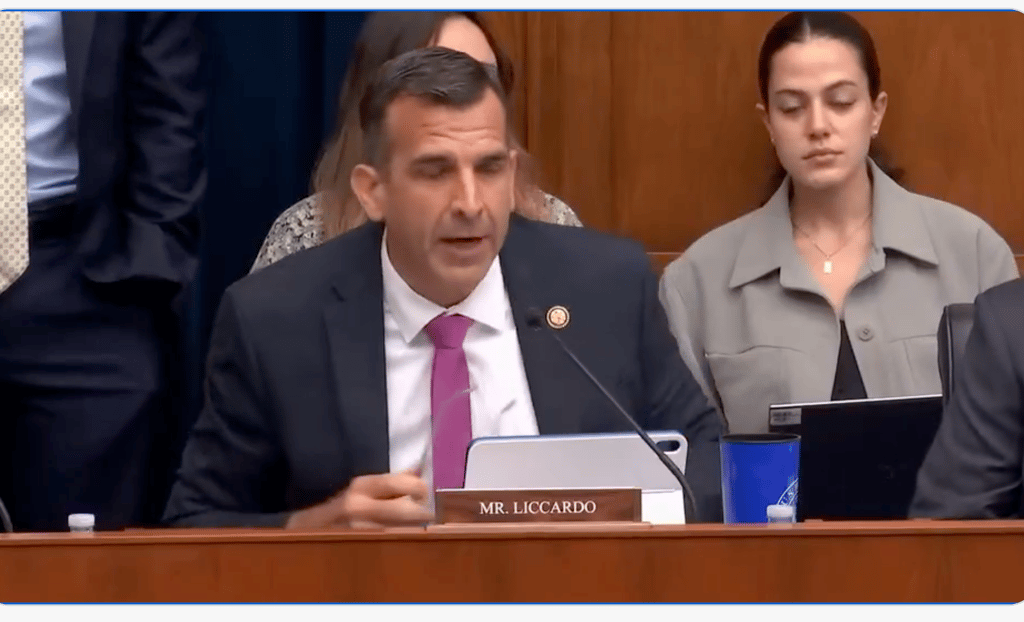Trump’s Presidency and the Alleged Pay-to-Play Scheme: A Deep Dive into Financial Corruption
6/27/20254 min read


Trump’s Presidency and the Alleged Pay-to-Play Scheme: A Deep Dive into Financial Corruption
Introduction:
In a startling revelation during a congressional hearing, Democrat Sam Liccardo accused the Trump administration of orchestrating a "pay-to-play" scheme involving major banks. Liccardo highlighted how banks like Bank of America and J.P. Morgan, under investigation for failing to protect consumers from fraud on the Zelle network, saw their cases dismissed after significant donations to Trump’s inauguration. This accusation raises alarming questions about the integrity of financial regulations and the influence of political donations on legal outcomes. As the Consumer Financial Protection Bureau (CFPB) rolled back consumer protections, Americans faced billions in additional costs. This blog post explores the details, implications, and broader context of these claims, engaging readers with a critical analysis of corruption in U.S. politics.
The Allegations: A Congressional Exposure
During a recent hearing, Representative Sam Liccardo (D-CA) brought to light a disturbing pattern of alleged corruption. He pointed out that Bank of America and J.P. Morgan, both under CFPB investigation for not reimbursing customers defrauded via Zelle, contributed heavily to Trump’s 2025 inauguration—$500,000 and $1 million, respectively. Shockingly, their cases were subsequently dropped. Liccardo’s evidence suggested a direct correlation between these donations and the dismissal of legal actions, implicating a "pay-to-play" dynamic where financial support buys regulatory favor.
This isn’t an isolated incident. Other banks, including Capital One and Wells Fargo, faced similar scrutiny but saw their cases dismissed after contributing to Trump’s campaign coffers. The CFPB, originally established to safeguard consumers post-2008 financial crisis, under Trump’s influence, shifted from protector to enabler, dismissing 22 enforcement actions that could have returned $3 billion to consumers.
The Financial Impact: Billions Lost
The fallout from these actions is staggering. According to the Consumer Federation of America and the Student Borrower Protection Center, Trump’s rollback of CFPB regulations has cost Americans at least $18 billion. This figure includes higher fees, lost settlements, and unchecked consumer harm. For instance, the abandonment of Biden-era caps on credit card late fees ($8) and overdraft fees ($5) alone is projected to cost consumers $15 billion annually.
Moreover, the CFPB’s decision to drop lawsuits against banks like JPMorgan Chase, Bank of America, and Wells Fargo, despite evidence of nearly $900 million in consumer losses, exemplifies a regulatory failure. These banks were accused of allowing scammers to operate freely on Zelle, yet faced no consequences. Instead, they continued to profit, while everyday Americans bore the brunt of financial insecurity.
This scenario contradicts Trump’s campaign promises to alleviate living costs and fight fraud. Instead, it appears to institutionalize a system where the wealthy can buy immunity, leaving the working class vulnerable. The CFPB, once a beacon of consumer defense, has been gutted, with its workforce reduced by 90% and its mission undermined.
The Broader Context: Corruption and Influence
This alleged "pay-to-play" scheme is part of a larger narrative of corruption during Trump’s presidency. Organizations like CREW (Citizens for Responsibility and Ethics in Washington) have documented over 3,700 conflicts of interest, suggesting a pattern where personal and political gains trump public interest. The financial sector’s influence is particularly pronounced, with major banks and corporations donating record amounts to Trump’s inauguration—$239 million in total, fueled by Big Tech, Oil, and Banking.
The CFPB’s transformation under Trump reflects a broader deregulatory agenda favored by these industries. Trump’s administration celebrated this shift, with the U.S. Chamber of Commerce praising the rollback of consumer protections as a win for economic growth. However, this growth comes at the expense of ordinary Americans, who face higher fees, reduced refunds, and increased vulnerability to fraud.
State governments, now left to pick up the slack, are ill-equipped to handle the scale of financial oversight previously managed by the CFPB. This regulatory vacuum not only undermines consumer trust but also poses systemic risks to the economy, as unchecked financial practices can lead to broader instability.
Implications for Democracy and Accountability
The implications of these actions are profound for American democracy. If true, the "pay-to-play" scheme erodes the principle that justice is blind and that regulatory bodies serve the public interest, not private donors. It suggests a presidency where policy decisions are influenced by campaign contributions, undermining the rule of law and fostering cynicism among voters.
Moreover, this scenario highlights the urgent need for campaign finance reform and stronger oversight of regulatory agencies. The influence of money in politics is not new, but the scale and brazenness of these allegations demand a robust response. Voters must demand transparency and accountability, ensuring that elected officials prioritize public welfare over personal gain.
The role of media and watchdog groups is crucial in exposing such corruption. Platforms like Boncopia.com play a vital role in disseminating this information, fostering informed discourse, and holding power to account. As consumers and citizens, we must remain vigilant, questioning the motives behind policy decisions and advocating for a government that truly serves the people.
Thought Questions:
How can we ensure that regulatory bodies like the CFPB remain independent and focused on consumer protection?
What steps should be taken to reform campaign finance and reduce the influence of money in politics?
Does this alleged "pay-to-play" scheme reflect a broader issue of corruption in U.S. politics, or is it an isolated incident?
How can voters hold elected officials accountable when financial interests seem to overshadow public interest?
hello@boncopia.com
+13286036419
© 2025. All rights reserved.